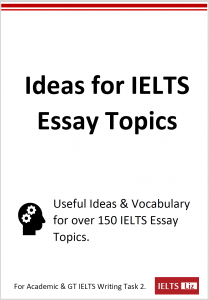Below are a few questions for the IELTS speaking part 1 topic of plants. This is a current topic in the IELTS speaking test.
Plant Questions: IELTS Speaking Part 1
- Do you like plants?
- Do you know a lot about plants?
- Have you ever had a plant?
- Did you ever grow a plant as a child?
- Would you ever give a plant as a gift?
- Why do people like plants in their house?
- Do you have a garden?
- Do you know how to cultivate plants?
Vocabulary:
Click below to visit the vocabulary page for this topic:
Plant Vocabulary & Model Answers
Tip: you are not expected to know specialist knowledge about plants – keep your answers personal and friendly. Be descriptive and chatty.
Other Speaking Topics
See common topics: IELTS Speaking Part 1 Common Topics
Also review the recent questions page: Current Topics & Questions
All the best
Liz







